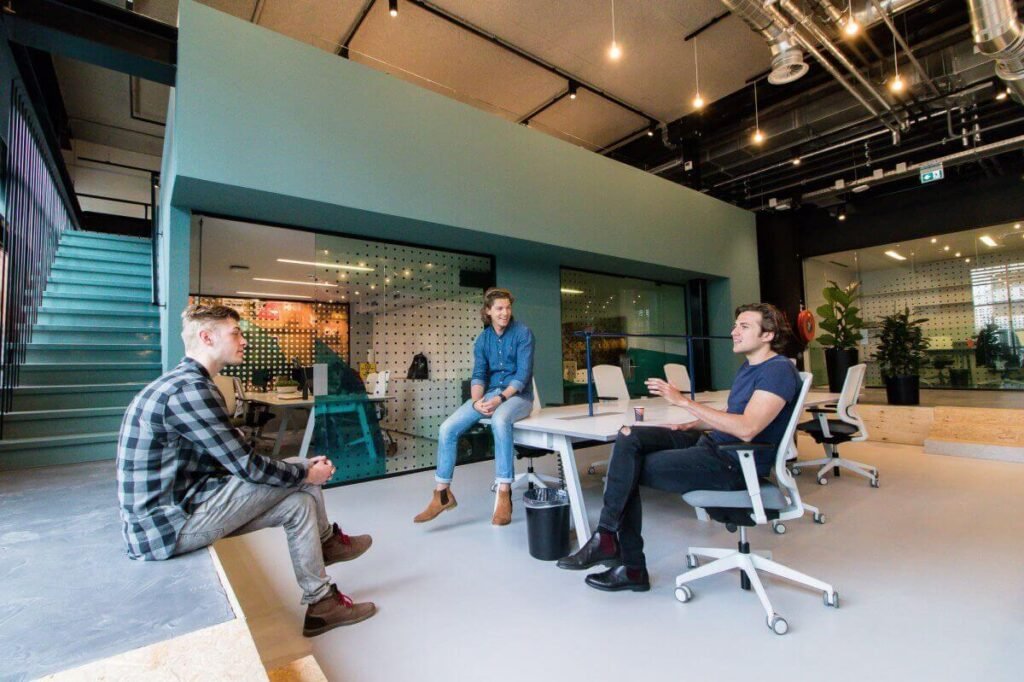As the traditional boundaries between professional and personal life continue to blur, many seek new environments supporting productivity without sacrificing personal well-being. The rigid structure of conventional offices and the isolating nature of working from home no longer suit the evolving needs of today’s workforce. Coworking spaces are redefining what it means to work efficiently while still prioritizing mental health, social connection, and flexibility.
We will explore how coworking environments, such as CMPND’s Newkirk location, reshape the future of work-life balance by providing a thoughtful middle ground where career goals and lifestyle needs can thrive together.
How Coworking Spaces Support Work-Life Balance
1. Flexible Scheduling Supports Individual Rhythms
One of the key advantages of coworking spaces is the flexibility they offer. Traditional offices often enforce strict hours, regardless of whether employees are early risers or night owls. Coworking spaces allow individuals to build work schedules that match their energy levels and personal obligations.
Whether someone prefers to begin their day at dawn or ease into tasks in the afternoon, the accessibility of coworking locations, such as https://www.cmpnd.com/coworking/97-newkirk, makes this possible.
This adaptability reduces burnout, enhances productivity, and allows people to better align their work hours with personal commitments such as family time, errands, or exercise. Spaces like CMPND in Jersey City often operate with extended or 24/7 access, allowing members to seamlessly integrate work into their lives without sacrificing tempo. By not being tied to a one-size-fits-all approach, professionals can strike a better balance and enjoy a more natural rhythm between work and life.
2. Separation Between Work and Home Without Isolation
Remote work has grown in popularity but has also brought challenges, especially when creating boundaries between home and work life. Working from a couch or kitchen table can feel convenient at first, but over time, it can lead to mental fatigue, lack of motivation, and diminished productivity. Coworking spaces provide a designated professional setting, which helps mentally separate work tasks from household distractions.
At the same time, they avoid the impersonal, rigid environment of traditional office buildings. These spaces are designed to be welcoming, thoughtfully decorated, and full of natural light, providing an uplifting atmosphere that fosters focus without sacrificing comfort.
Being around others who are also working promotes a sense of shared purpose while still allowing personal autonomy. That middle ground can be essential for those who crave routine and social interaction but don’t want to feel locked into corporate culture.
3. Amenities That Support Well-Being Beyond the Desk
Unlike many traditional office setups, coworking spaces often prioritize holistic well-being. CMPND, for instance, includes amenities such as fitness centers, lounges, rooftop access, and event spaces. These features support physical health, social connection, and mental breaks, all vital to sustaining long-term productivity. Instead of needing to travel elsewhere to decompress or exercise, members can take a break with a workout, enjoy lunch on the rooftop, or attend a networking event—all within the same building.
This ease of access encourages healthier routines, reduces commuting stress, and allows professionals to integrate wellness practices into their daily workflow. Rather than viewing well-being and work as two separate goals, coworking spaces bring them together. These environments are not just places to sit and work; they’re thoughtfully designed ecosystems that acknowledge the interconnectedness of mind, body, and professional life.
4. Built-In Community for Meaningful Social Interaction
Loneliness and lack of community are growing concerns for remote workers and freelancers. Coworking spaces help counteract this by fostering a community of like-minded individuals who work independently but share a common environment.
At CMPND’s Newkirk location, members are encouraged to connect through networking events, shared lounges, and casual conversations that spark collaboration and camaraderie. These interactions aren’t forced but emerge naturally from the shared rhythm of the space.
A built-in community creates opportunities to learn from others, gain new perspectives, and find support during challenging times. It also brings an organic form of accountability and motivation, which can be difficult to sustain when working alone. The social fabric of coworking spaces is a core ingredient in maintaining a healthy work-life balance, allowing individuals to feel part of something larger while still pursuing their personal and professional goals.
5. Adaptable Spaces for Different Work Styles and Life Phases
Every professional is different, and one person’s ideal work environment may not match another’s. Coworking spaces accommodate this by offering a variety of setups—private offices, dedicated desks, hot desks, and collaborative areas. Whether someone needs quiet for deep focus or a vibrant setting for creative brainstorming, they can choose the space that suits their task and mindset. Furthermore, coworking environments are adaptable for different life phases.
A new parent may value flexible hours and proximity to home, while a startup founder might need a private office and meeting rooms. As life changes, so can the way individuals use the space. CMPND’s range of membership options makes it easy for members to scale up or down depending on their evolving needs. This adaptability supports a work-life balance that grows with the person, not against them, making coworking not just a trend but a sustainable model for the future.
Coworking spaces represent more than just a new office style—they embody a shift in how people define success, productivity, and fulfillment. As work continues to evolve, environments like CMPND’s Newkirk location offer a practical solution to corporate settings and remote isolation challenges. These spaces nurture flexibility, well-being, social connection, and personal growth, making them a meaningful choice for those striving to maintain a healthy work-life balance.
By embracing adaptable schedules, purpose-driven design, and a supportive community, coworking environments provide the infrastructure for a more human-centered approach to professional life. Rather than separating work from life, they allow both to thrive in harmony.
